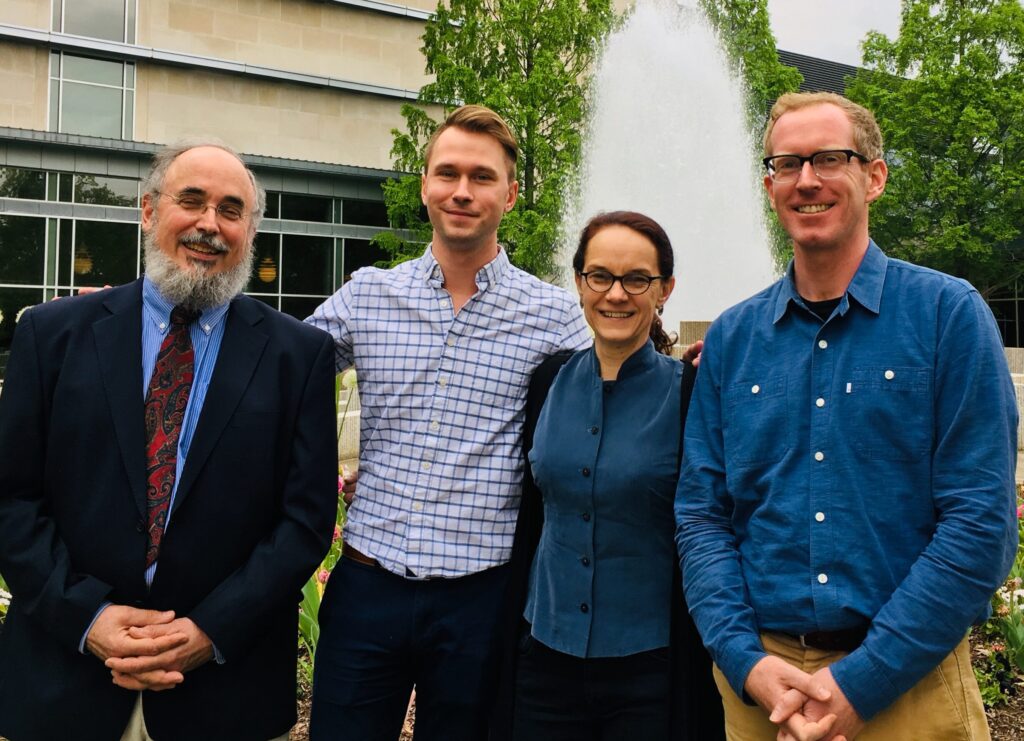Exceptional Times Call for Exceptional Responses

The Clowes Fund Executive Committee
March and April 2020 were scary days. Most of the country had shut down to stop the spread of the coronavirus. The news was filled with heartbreaking stories of patients sick from COVID-19 and people who were suddenly unable to buy groceries or pay rent. Foundation board and staff members were not immune; most of us were anxious about our own health and our family’s health, and we were concerned about our nonprofit partners and those who rely on them for support.
During the early months of the pandemic, program staff like myself had many difficult conversations with grantees. Nonprofit leaders were scrambling to figure out how to pay staff and meet immense community needs. Foundations were also scrambling to act quickly, and it was clear to us at The Clowes Fund that we needed a plan. In early April, we convened a sub-committee of the board and the staff proposed a conservative plan. We would double down with current grantees rather than launch new relationships, focus on the highest need program areas (for us, immigrant services and workforce development) and create more flexibility in our grantmaking; e.g., award program requests as unrestricted grants.
It was a good plan, but it wasn’t a great plan.
A Time for Bold Leadership
Soon after that committee meeting, several Clowes family members began to ask themselves and each other, “Will we regret our failure to respond boldly?” In short, the answer was yes, and a new mantra was born: exceptional times call for exceptional responses.
With the general agreement that a pandemic was the time for bold leadership, board officers proposed using 3-5% of Fund assets for a three-part plan to:
1) Fund all worthy proposals under consideration in the 2020 grants cycle, including new relationships.
2) Immediately award a set of small emergency grants of $10,000 each for food relief and other immediate needs in family and board members’ communities.
3) Develop a slate of significant emergency grants of $50,000-$150,000 each to organizations that offer immigrant services or workforce development, especially direct employment in the Fund’s priority regions. The Fund’s median grant size is $40,000, so these grants would be well above and beyond a typical Clowes Fund grant.
In particular, the Fund’s board and staff were concerned with communities disproportionately affected by the health and economic crises unfolding in America. The Fund has long been committed to the economic, emotional and mental well-being of immigrants, as well as people who struggle to earn a living without adequate education and training. We were concerned that the federal COVID-19 response had excluded many of our constituents. For example, families with undocumented family members and those in the midst of applying for asylum were excluded from much needed $1,200 economic relief checks and $600 per week in supplemental unemployment insurance, and many other low-income people did not have the work history to qualify for these benefits. We also knew that many immigrants were working in essential positions in healthcare settings, restaurants and grocery stores, and were at risk for contracting COVID-19 and transmitting it to their families. Addressing these racial and economic inequities was at the forefront of our planning.
Considering Long-term Financial Health
The staff was proud to be part of this new plan and we were excited to roll up our sleeves to help the board implement its vision. At the same time, we were all watching the stock market and looking at the many multi-year commitments that would be awarded as part of the plan to fund all worthy proposals in the 2020 grants cycle. The math worried us.
Was the Fund going to be able to serve its nonprofit partners in 2021? Staff raised a red flag and the board listened. Like many multi-generational family foundations, The Clowes Fund is committed to sensible financial management that advances its long-term goals, but a truly exceptional response needed more than one year of funding. The board wrestled with how to balance these goals and concluded that it is entirely possible to respond exceptionally without unduly damaging the foundation’s long-term fiscal health.
Finding a Balance
In late June, the board unanimously approved The Clowes Fund’s COVID-19 relief plan, which called for an additional 5% draw on principal, or $3.2 million in supplemental funding, thereby doubling its typical grantmaking budget. These Funds were used for $1.6 million in emergency grants that were paid in May and July, $400,000 in excess of the 2020 grantmaking budget to fund all worthy proposals in this grant cycle, and a $1.2 million set-aside to bolster 2021 grantmaking. The set-aside was key; the board was clear that the plan needed to provide immediate relief for grantees, but also safeguard the Fund’s long-term viability.
We know that family foundations large and small have stretched in meaningful ways to respond to the COVID-19 crisis, but community needs are here for the long haul. The Clowes Fund hopes that its own story can inspire other foundations to think creatively about stepping up today and being there for years to come.
The views and opinions expressed in individual blog posts are those of the author(s) and do not necessarily reflect the official policy or position of the National Center for Family Philanthropy.
